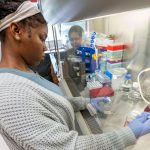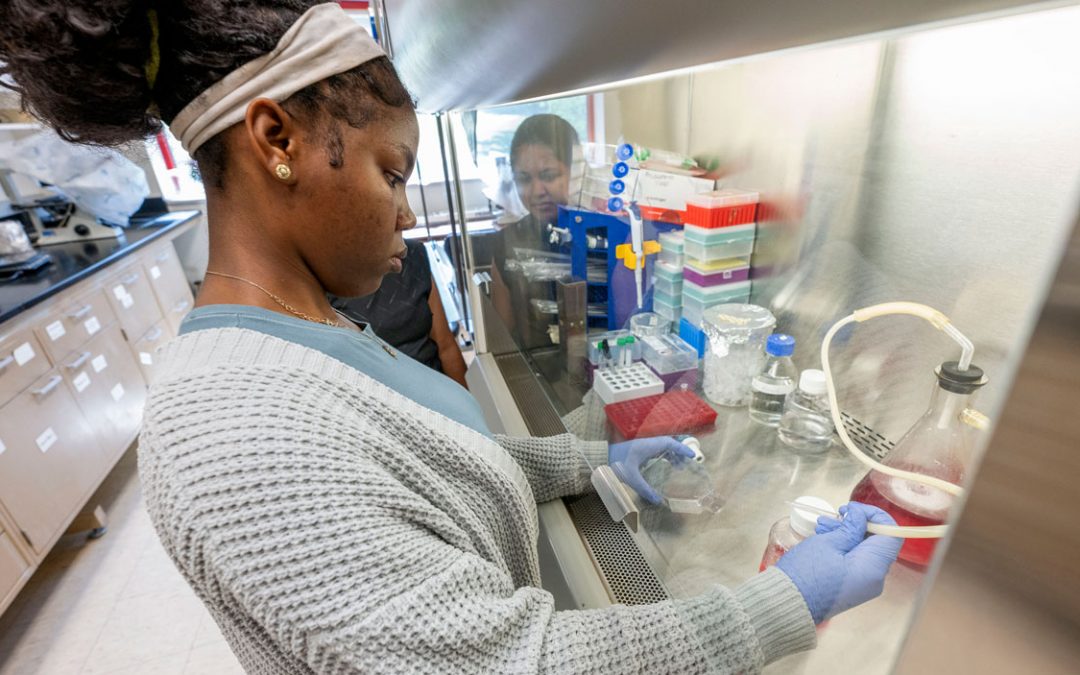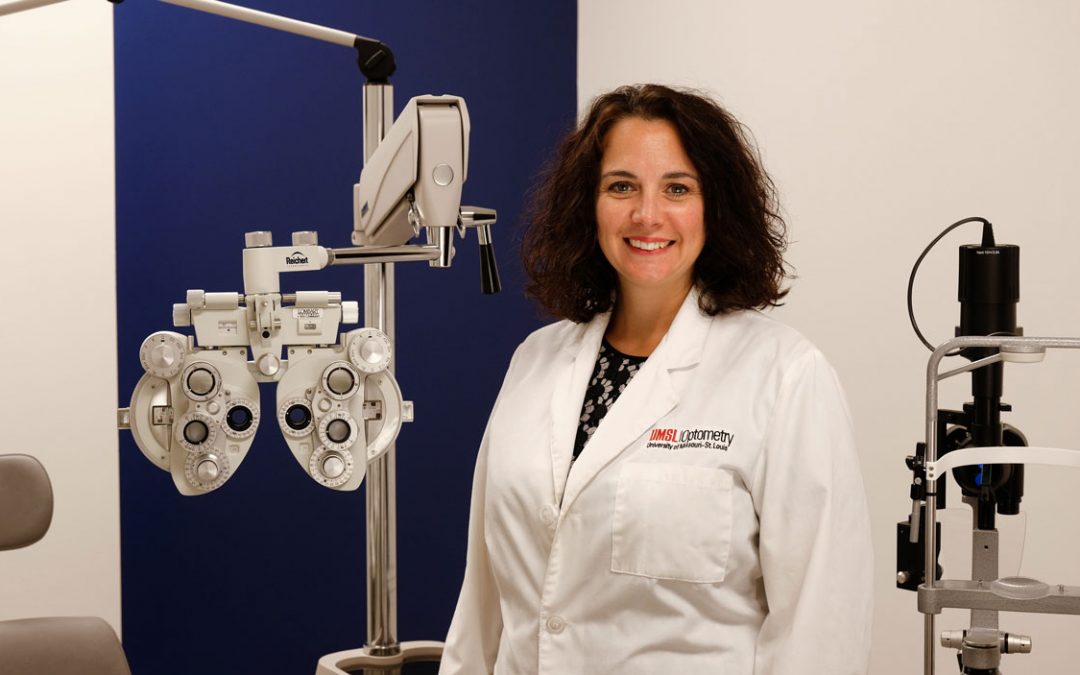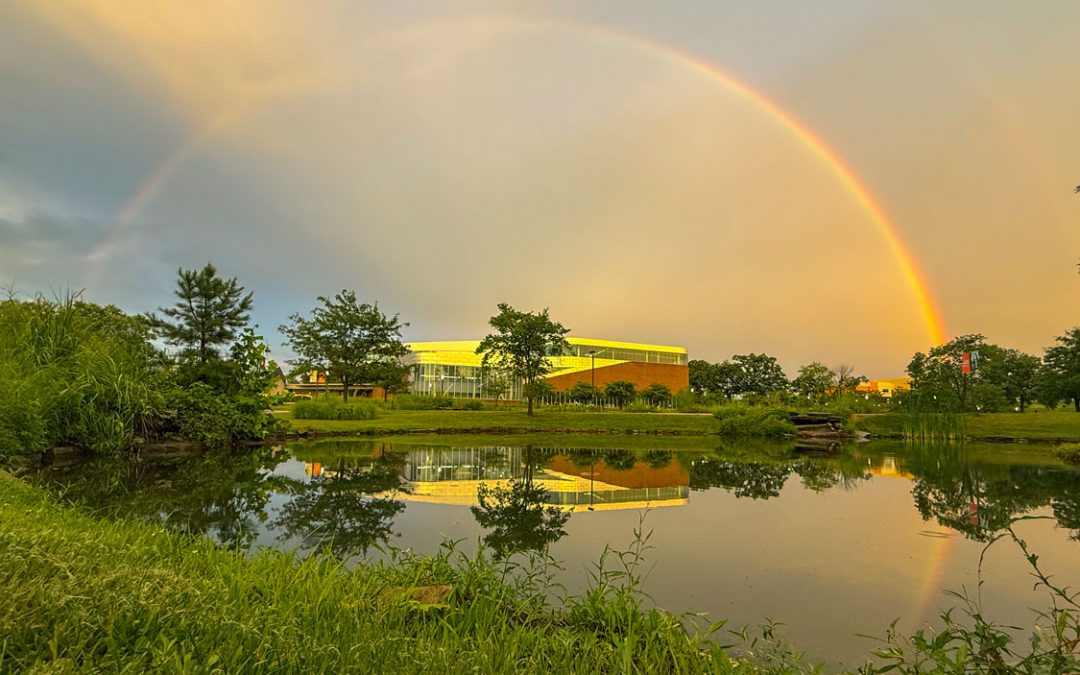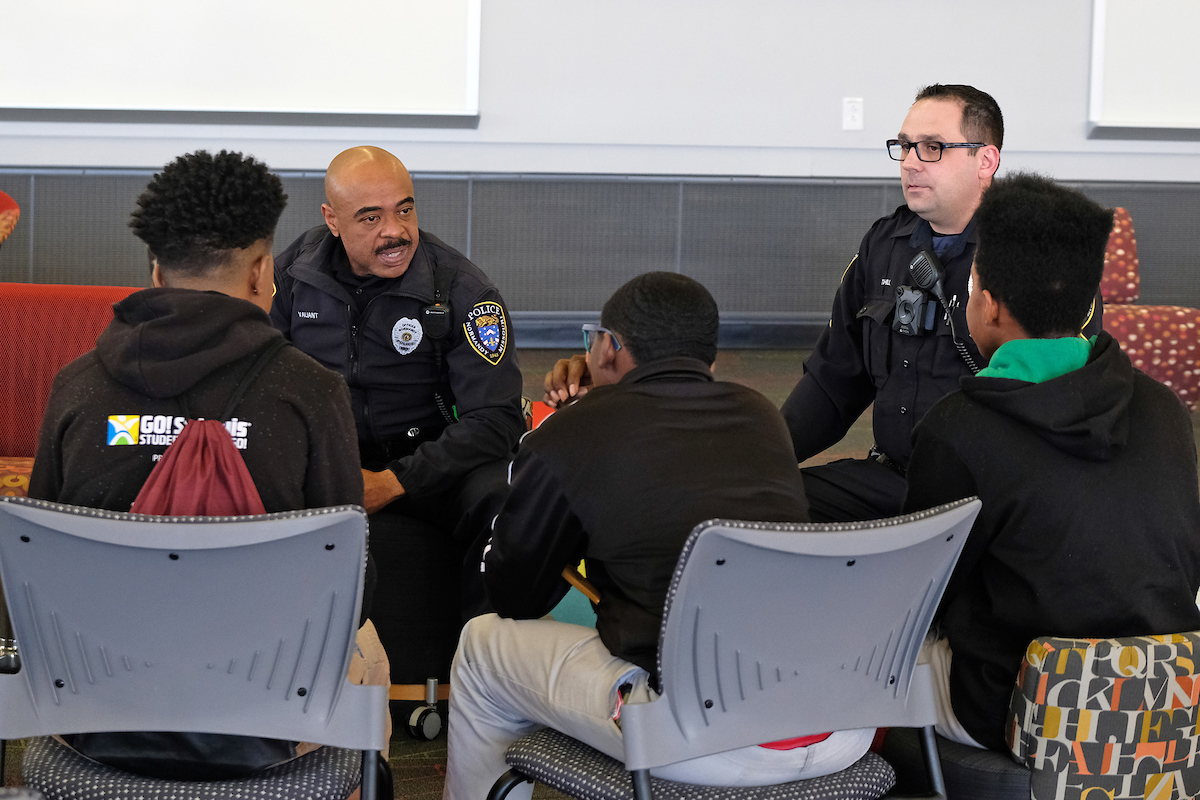
Seven police officers from Normandy and Pagedale sat down with 23 Normandy Middle School students for the second annual Day of Dialogue coordinated by UMSL alumna and 7th and 8th grade teacher Inda Schaenen and Normandy School Resource Officer Ralph Ruffin. (Photos by August Jennewein)
When seven police officers and 23 Normandy Middle School students came face to face for the second annual Day of Dialogue at the University of Missouri–St. Louis, the air felt thick – even on neutral turf.
The predominantly black 13- and 14-year-old students – especially the boys – kept their heads down, their bodies closed and avoided all eye contact with the officers – male, female, black, white and Hispanic – from the Normandy and Pagedale police departments in north St. Louis County.
Cutting through the discomfort was the voice of 7th and 8th grade teacher Inda Schaenen, who is a UMSL education and creative writing alumna.
“We have a very simple objective,” she said. “In a safe and trusting environment, we can share experiences and work toward healing fraught relationships with law enforcement. Remember, assume good intentions. Everyone is here because we want to make things better.”
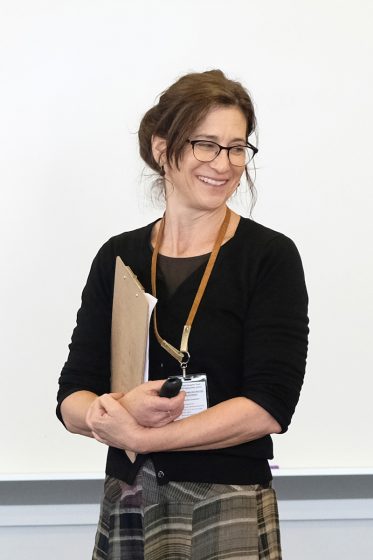
Inda Schaenen, MEd 2007, MFA 2009 and PhD educator preparation 2010, has been a teacher in the Normandy School District for five years. She currently teaches 7th and 8th grade, focusing on student-centered, community-responsive projects and interscholastic collaborations. The Normandy Crosscurrents project in her class nourishes deeper understanding across social and cultural differences in metropolitan St. Louis through an experiential, interdisciplinary curriculum that challenges harmful stereotypes.
For 90 minutes, the students and officers broke into small discussion groups, listened to experiences and assumptions made about each other and sought truth, mutual respect and actionable solutions.
Of course, sensitive topics arose. Students confronted officers about body and car cameras and their right to record police. Officers shared stories of working peaceful protests that turned violent.
“Do you think we’re afraid?” asked a female police sergeant.
“That’s why they shoot,” responded one male student.
“I think they’re just trigger happy,” another said.
Moments of sheer honesty began bubbling up to the surface.
“The same people that make you afraid, make us afraid,” the sergeant responded. “Do you know you’re more likely to die from the same people we’re scared of than another officer killing you? In my ten years, I’ve been blessed to not ever have had to shoot a person.”
Multiple officers stressed their tactical training that offers them many options – pepper spray, tasers, physical restraint – before pulling a gun out to shoot.
A group of students wrote down on a whiteboard five words that came to mind when they see the police: “dip,” “f*ck,” “stop,” “slow down” and “talk.”
During the larger group show and tell, officers liked “stop,” “slow down” and “talk,” stressing that compliance makes all the difference in whether a situation escalates to a point where they have to use force.
“You know what I see when I look at you?” the sergeant asked. “My son. And probably like your parents, you know what I want for him? To be somebody someday. We’re here to make a change. That’s why I’m here. I want to know how to be a better officer. You have to be a part of change, so what can you do?”
Students came up with all types of actionable items, from hosting police-student get-togethers at school to greeting officers kindly on the street if they happen to see them.
They also shared new understandings like “not all cops are out to kill,” “attitude makes a big difference” and “police are here to protect.”
Officers learned that students wanted their presence in the community and their lives in positive ways outside the typical job, mainly community interaction days that help break down social barriers and misunderstandings. They wanted more dialogue days.
Schaenen along with School Resource Officer Ralph Ruffin coordinated the first Day of Dialogue in 2017.
“It was so positive, so powerful, we wanted to do more and build it into the curriculum as a way to start to make change real,” Schaenen said.
The Day of Dialogue is now part of the Normandy Crosscurrents project in her classroom, which aims to nourish deeper understanding across social and cultural differences in metropolitan St. Louis through experiential, interdisciplinary curriculum that challenges harmful stereotypes.
“We need to bridge the gap in a safe environment,” Ruffin said, “and change perceptions of each other. We can start that here and hopefully it gets out into the community on both sides.”
By the end of the two hours, the air was relaxed, even joyful. It was noon and students and officers shared some pistachios along with some laughs. A few officers handed out their contact information.
“Call me if you need help or just to talk,” one said. “I’m here for you.”


